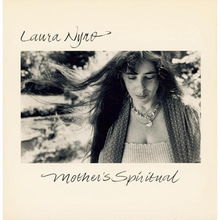
The Spiritual Meaning of Om: A Multidimensional Exploration
The sound “Om” is one of the most sacred and powerful mantras in Hinduism, Buddhism, and Jainism. It is often chanted, meditated upon, and considered to be the universal sound that resonates with the essence of the cosmos. In this article, we delve into the spiritual meaning of Om from various dimensions, exploring its significance in different cultures and spiritual practices.
Historical and Cultural Significance

Om has been a part of Indian spiritual traditions for thousands of years. It is believed to be the primordial sound from which the universe emerged. In the Rigveda, one of the oldest sacred texts of Hinduism, Om is considered to be the source of all creation. The ancient texts describe Om as the sound of the universe, the sound of the divine, and the sound of the soul.
In Buddhism, Om is often associated with the Buddha and is considered to be a sacred sound that brings peace and enlightenment. In Tibetan Buddhism, Om is known as “Aum” and is believed to be the sound of the universe’s creation. It is often chanted during meditation and rituals to invoke the presence of the Buddha and to purify the mind.
Symbolism and Spiritual Significance

Om is a three-syllable mantra that is often represented as “A-U-M” or “Aum.” Each syllable has its own spiritual significance:
| Syllable | Meaning |
|---|---|
| A | Creation and the material world |
| U | Preservation and the spiritual world |
| M | Destruction and the divine world |
Together, these three syllables represent the cycle of creation, preservation, and destruction that is the essence of the universe. Om is also considered to be the sound of the divine presence, and chanting it is believed to bring one closer to the divine.
Practical Applications

Om is not just a spiritual symbol; it has practical applications in daily life. Chanting Om can help to calm the mind, reduce stress, and improve concentration. It is often used in meditation to focus the mind and to invoke the presence of the divine. Here are some practical ways to incorporate Om into your daily life:
-
Chant Om for a few minutes each day to center yourself and bring peace to your mind.
-
Use Om as a mantra during meditation to help you focus and deepen your practice.
-
Chant Om before and after meals to express gratitude and to connect with the divine.
-
Use Om as a grounding sound during times of stress or anxiety.
Conclusion
The spiritual meaning of Om is vast and multifaceted, encompassing the essence of the universe, the divine presence, and the cycle of creation, preservation, and destruction. Whether you are a practitioner of Hinduism, Buddhism, or Jainism, or simply interested in spirituality, Om offers a powerful tool for connecting with the divine and for bringing peace and balance to your life.




